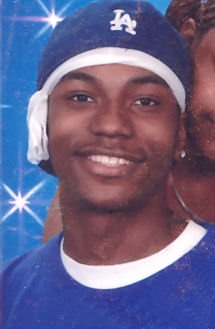 The more-than 700-page plus Grand Jury transcript of the Keaton Otis shooting shows the police officer Otis shot never saw a gun, and also that Otis had assaulted a man in North Portland on Feb. 9.
The more-than 700-page plus Grand Jury transcript of the Keaton Otis shooting shows the police officer Otis shot never saw a gun, and also that Otis had assaulted a man in North Portland on Feb. 9.
The Grand Jury ruled last week that there was no wrongdoing on the part of officers in the traffic stop, which resulted in death and injury.
Officer Chris Burley was reportedly shot twice by Otis during the traffic stop May 12. Seven Portland police officers surrounded his car, three of whom fired more than 30 bullets into it.
Otis died at the scene from multiple gunshot wounds. Burley was hospitalized and released, and is expected to make a complete recovery.
Otis' family has publicly stated their 25-year-old son had been diagnosed with a "mood disorder." Otis, who lived with his parents, had no known gang ties, but was shot to death by members of the Portland Police anti-gang squad.
The Grand Jury documents, released Monday afternoon, show that after the hail of bullets ended and Otis stopped moving, officers were ordered to move in and Taser him, then fire three beanbag rounds at his body.
When there was no physical response, an arrest team moved in, pulled Otis' lifeless body out of the car, and handcuffed it.
An unidentified questioner during the Grand jury proceedings asks, "Just to be clear, why did you have him fire beanbag rounds?"
"…I thought potentially we could move forward and take him into custody and, in turn, get him medical care," Sgt. Don Livingstone says. "But before I did this, I wanted to make sure he was not faking, he was not lying in wait for us to make a movement and then again would shoot at us when we walked forward," he said.
A few minutes later Livingtone adds, "We move forward. They grab the suspect's arms. They pull him out of the vehicle, up onto the sidewalk and place him into custody without incident."
Another unidentified person says, "What do you mean when you say, 'They placed him into custody?'"
"They put handcuffs on him,' Livingstone says.
"Around his back on in front?"
"Behind his back, put handcuffs behind his back. We're still going to have to make sure he doesn't have a weapon on him before medical can come in and check him," Livingstone says.
Detective Erik Kammerer reported to the Grand Jury that out of 32 shell casings found at the scene, only one did not correspond with the officers' own bullets.
Kammerer said the unique bullet was found in the front passenger floor of Otis' car.
The AMA Coalition for Justice and Police Reform announced Monday afternoon they'll be holding a press conference to look at "Lingering questions about the incident and the investigation."
In the court transcripts released Monday, Burley testifies that he never saw a gun at the scene. Just before he was shot, he tried unsuccessfully to use a choke hold on Otis.
Burley says that "the last situation" he dealt with like that involved a meth addict who assaulted both him and his partner.
"And I'm backing up, I'm backing up, and then it looks – I'm still kind of got this vision just straight into the car of this guy. And I believe I hear – I believe I hear 'Gun'. And then it looks like he's looking over at me. And I couldn't tell if he was arched back in the seat like this or if he was – kind of bent over in the car so he's hunched over. I couldn't—couldn't tell which was he was situated, because everything's happening so quickly. And then I hear two gunshots from inside the car. And then I automatically – as soon as I hear the gunshots, I feel burning in my legs and I realized that I have been hit, and I go to the ground," Burley says.
On further questioning, Burley said he did not remember that any officers were facing him as he was shot. He said he could not recall seeing any of the officers with their guns out, and also couldn't remember whether Otis had his seatbelt on.
Also in the testimony, a local merchant with a booth at the Lloyd Center said that Otis drove up to him on the street in February, and threatened him with an aluminum baseball bat over a woman the merchant employs.
Farhan Rashtabadi said Otis was under the impression that he was a rival for the woman's affections.
The businessman said Otis waved the bat in his face, cursing and saying, "Leave her alone. She's mine."
After the altercation came to a close, Rashtabadi noted the Toyota's license plate number and reported the incident to the police.
His employee indicated she had dated Otis once, and that he still occasionally sent her "weird" text messages.
"I thought maybe he is just being a psycho or something, he is obsessed with my employee," Rashtabadi said.
As police May 12 decided to pull over Otis' car, they noted that it wasn't linked to any offenses, but that it came back "registered to a woman." After they put on sirens and tried to pull Otis over, his driving became erratic; they eventually boxed in the vehicle and began the fatal stand-off.
Portland and Seattle
Free Subscription to Breaking News
Free Subscription to Breaking News




















































































































































































































































































































































